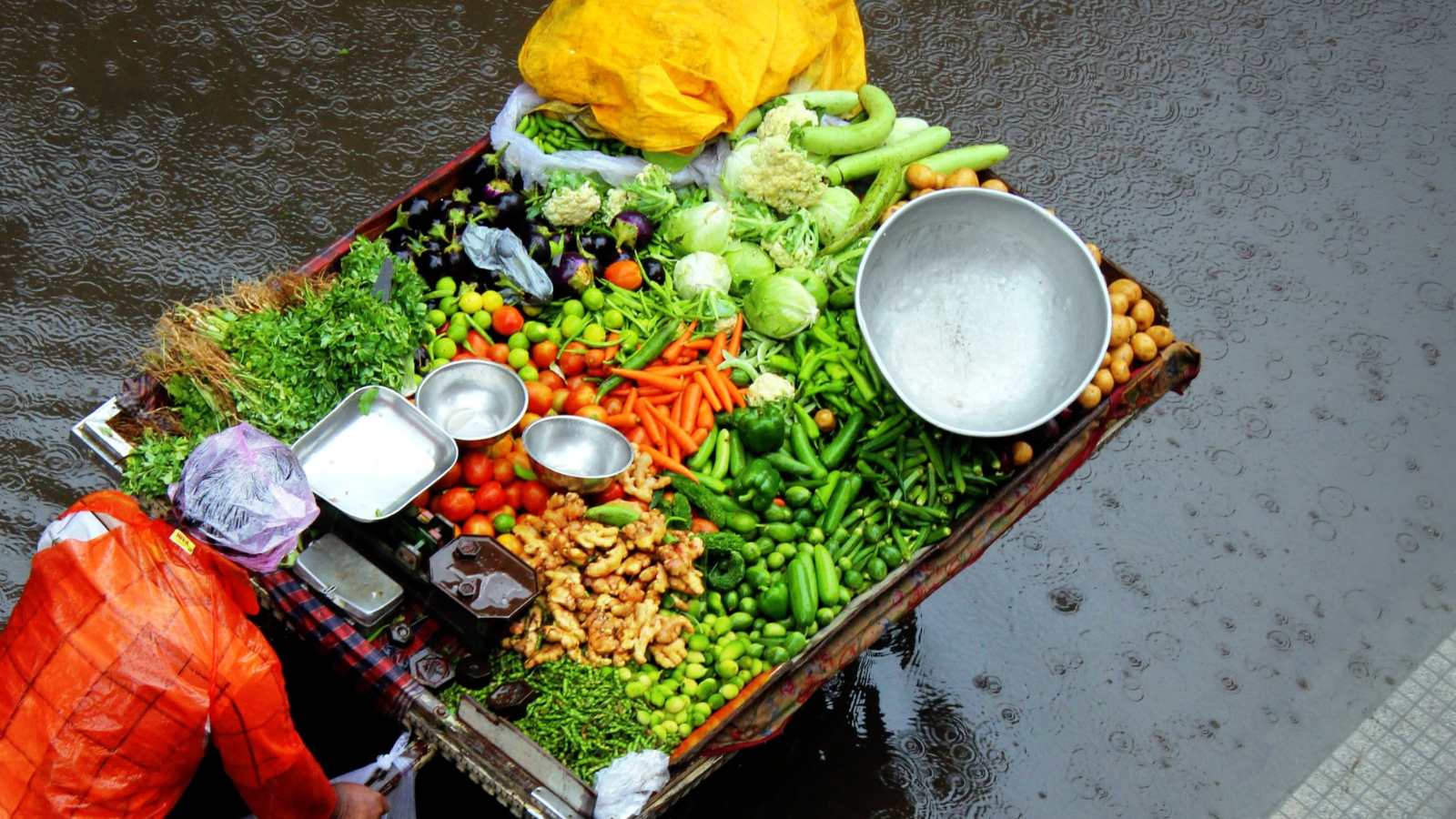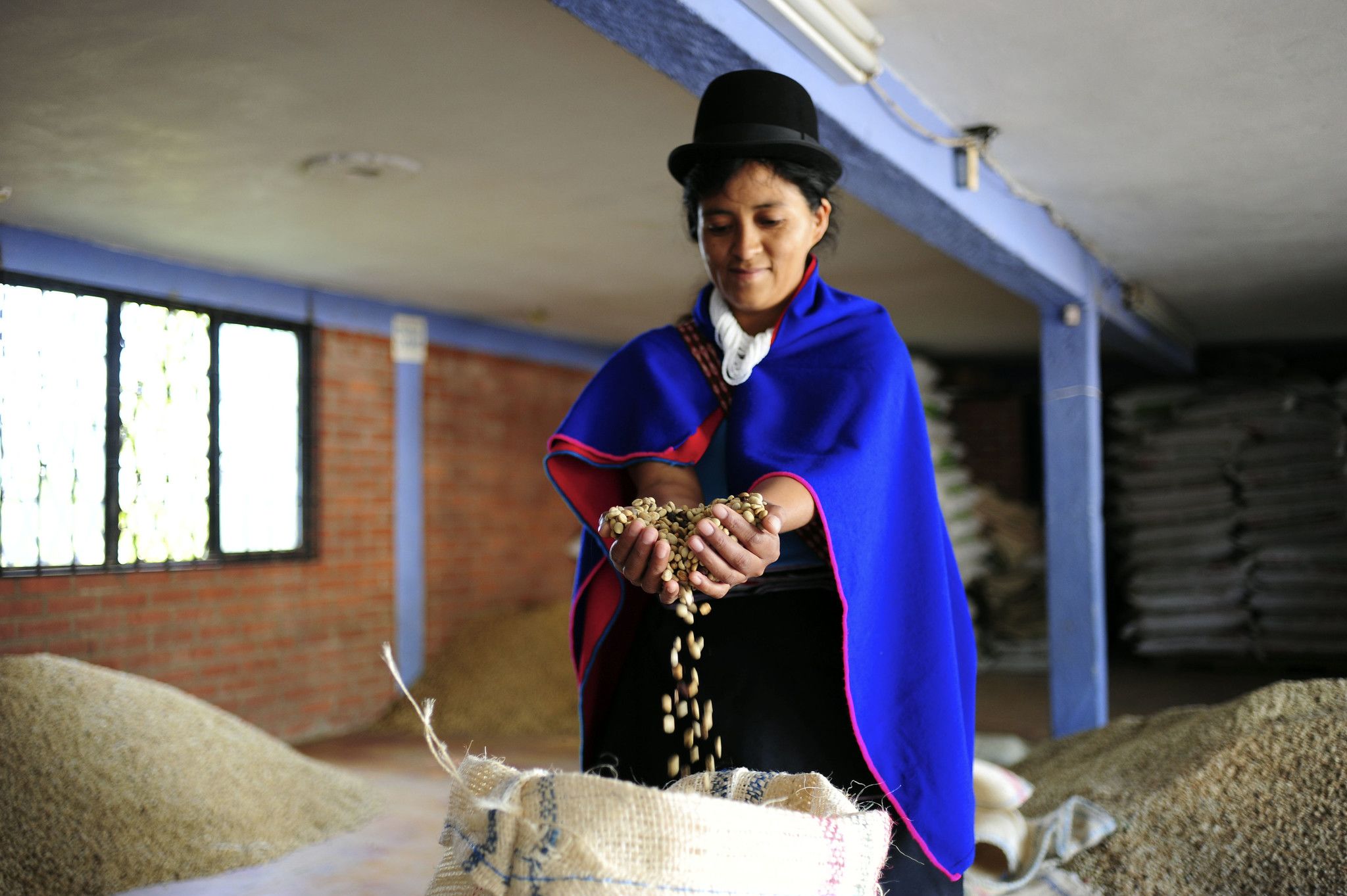Our global food system is failing us from every angle. We must act now to rewrite the future and build equitable and sustainable food systems. The SDG2 Advocacy Hub has produced two short briefs on the critical links between climate change and agriculture and nutrition.
Find the briefs here:
- Climate X Ag
- Nourishing the Future on a Warming Planet

The world is facing crises on multiple fronts that threaten lives, livelihoods, and the environment. World temperatures are set to rise by 2.5°C by the end of the century (Source: UNFCCC). Food prices are at an all time high. New evidence and analysis by the Standing Together for Nutrition Consortium and IFPRI finds that on average a 5% rise in food prices increases the risk of child wasting by 8.5% (Source: IFPRI). About 60 percent of the 73 low and lower-middle income countries are at high risk of debt distress or already in debt distress.
The two weeks this November when world leaders gather in Sharm el-Sheikh for COP27 and Bali for the G20 Summit, will be a critical turning point. It is hard to overstate the significance of the decisions that will be taken and the enormous consequences for all of humanity and our planet, in particular for low and middle income countries and the poor and rural communities that are on the front lines of the climate crisis. As UN Secretary General Antonio Guterres and climate scientists and activists are warning–we are rapidly running out of time to avoid the worst effects of climate change. Low income countries also face huge fiscal challenges and unsustainable debt as a result of the COVID pandemic, the cost-of-living crisis exacerbated by the Ukraine conflict and the extreme weather events caused by climate change. Decades of progress on extreme poverty, hunger, nutrition, health and education have unraveled in the last two years putting the Sustainable Development Goals (SDGs) even further at risk.

COP27
Hosted by the Government of Egypt, from November 6-18, agriculture, food systems and nutrition are finally on the agenda, with a thematic day on agriculture and adaptation on November 12th and no less than three food-related pavilions.
Climate negotiations will center on key issues raised by developing countries including a financing facility for climate-related loss and damage. In addition to progress on this, we are looking for financial pledges to fulfill previously made commitments to provide $100 billion annually in climate finance to support developing countries in implementing their climate plans, including a doubling of adaptation financing by 2025. To prevent future increases in food insecurity and malnutrition, adaptation funding must be focused on agriculture, ensuring that financing reaches and supports smallholder farmers directly.
COP27 negotiators must make progress towards reforming food systems recognizing the interlinkages between climate change, diets and nutrition, including the urgent need to anticipate and respond quickly to climate shocks to prevent a rise in malnutrition among vulnerable populations, especially women and young children.

G20 Summit
On November 15 and 16th, Indonesia will host the G20 Leaders’ Summit. On the road to Bali, there have been several preparatory ministerial meetings, including a joint meeting of finance and agriculture ministers to discuss global food security and the impact of the cost of living crisis, just ahead of the World Bank/IMF Annual Meetings in October. Finance ministers also discussed recommendations of the G-20 commissioned independent review of the capital adequacy frameworksof the Multilateral Development Banks to identify opportunities to leverage contributions to the MDBs to raise the financing needed to assist low and middle income countries recover from the economic impact of the pandemic and to achieve the SDGs.
At the G20 Summit, we will be looking for concrete commitments to address the current global food crisis, building on the steps taken by the G7. It’s worth recalling that the G20 established the Global Food Security and Agriculture Program (GAFSP) in response to the 2007/2008 food price crisis. We will also be looking for significant progress on easing the fiscal space of developing countries through debt relief, reallocating Special Drawing Rights and on optimizing the MDBs.
With so much at stake in the next two weeks, equity and solidarity are very much on the line.
Read two new briefs on smallholders farmers and climate, and nutrition and climate:

Climate X Ag

Nourishing the Future on a Warming Planet








